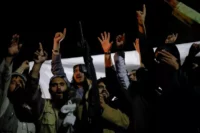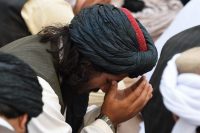
The Korea Model
In the middle of August 1952, Chinese Premier Zhou Enlai traveled nearly 4,000 miles to Moscow to meet with the Soviet dictator Joseph Stalin. Zhou was acting as an emissary for the leader of China, Mao Zedong. The two Communist powers were allies at the time, but it was not a partnership of equals: the Soviet Union was a superpower, and China depended on it for economic assistance and military equipment. Two years earlier, Mao and Stalin had embarked on a joint venture of sorts, giving their blessing to the North Korean leader Kim Il Sung when he invaded South Korea.… Seguir leyendo »



